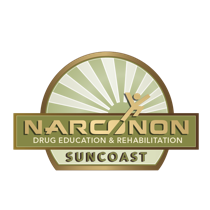Confronting Your Loved One About Their Substance Abuse

Families that have a loved one struggling with addiction can find it very difficult to confront them about their problems for a variety of reasons. One of those reasons is that addicts can be aggressive and combative when under the influence of or while withdrawing from drugs and alcohol. This can result in stress when attempting to confront an addict, both for the addict and those around them, and it can lead to all parties getting heated and experiencing difficulties in communicating with one another.
Another aspect can be the addict’s own inability to confront their problems, finding it easier to lash out at others rather than look inward. Manipulation is also a common behavioral trait when somebody is being driven by substance abuse. It is often the case that a family will simply get tired of being lied to, something that can also contribute to the difficulties of trying to help a loved one.
Talking to your loved one about their substance abuse is not always easy. It can become less stressful to navigate with the right tools under your belt. It’s important to have a plan on what to say and how to say it when dealing with any touchy subject, especially if you want to be effective with your communication. Many times the anger comes from a place of vulnerability. They may be in denial and holding onto their drug of choice for dear life, as they know no other solution to handling life’s problems.
This situation can escalate quickly when you are attempting to get them to take a step back and observe what is really going on with themselves internally and externally. Being under the influence can make this a very difficult task for someone to confront. It’s important to continue to try.
Before you speak with them, it is important to do it at a time where you can command their attention. If they never express a good time to talk or have become a pro at avoiding difficult conversation, then try and find ways in which you can get their attention and then transition into a more serious discussion, and that the environment is set up so there are very little or possibly no distractions.
It is important not to talk at them from a place of anger, but instead speak from a place of caring. Communication goes two ways. Giving your loved one the undivided attention they need when having a conversation is a key component to them being receptive to what you have to say. This will give them the opportunity to express their feelings, concerns and considerations while also inspiring them to do the same and respect you when it is your turn to talk.
It is common to be angry, even from a place that comes out of love, due to concern over their well-being, or simply by having resentments due to situations your loved one has caused because of their drug addiction. Substance abuse can cause a lot of regrettable behaviors, most commonly lying, stealing, and manipulation driven by drug or alcohol dependency. This can become a burden to those around them, but if your goal is to ultimately get them well and into a treatment facility, it is best to focus on the future to inspire hope rather than dwell on what cannot be changed and is in the past. The goal is to get them understanding what getting help can mean for them, which is a better future.
Act as caring as possible when expressing your feelings or giving your observations and concerns. Do not be too critical or harsh with this because it can cause your loved one to want to shy away from you or the conversation altogether. Let them know there is hope and a solution at hand. Have your plan to get them treatment precisely laid out beforehand so that the details are clear to them when you present them with it. Being as specific as possible can only help because usually, they are in a lost state of mind during active addiction.
If it continues to become increasingly difficult to confront your loved one without heated exchanges, it may be wise to hire a professional interventionist rather than continuing down a path that is not going anywhere and becoming unsafe. An interventionist can remove themselves from the emotions of the situation and can serve as a sort of moderator between the two sides. Even with all the above said, emotions are often high when it comes to loving someone with an addiction. A professional can help alleviate this problem by giving both sides a chance to be heard while helping steer it toward the path of resolution and getting the person the help they need.
The most important thing through all of this is to not give up on a person because of substance abuse. It can be an easy trap for any family to fall into when they have been burned by the constant stress of trying to help a loved one who seems incapable of helping themselves. Addicts can be relentless in their actions to secure the next fix, and it can often take that same relentless attitude by a family to ensure their loved one gets the help they need so everyone can put the addiction behind them.
Contributions by Danielle P.—Narconon Suncoast Graduate

